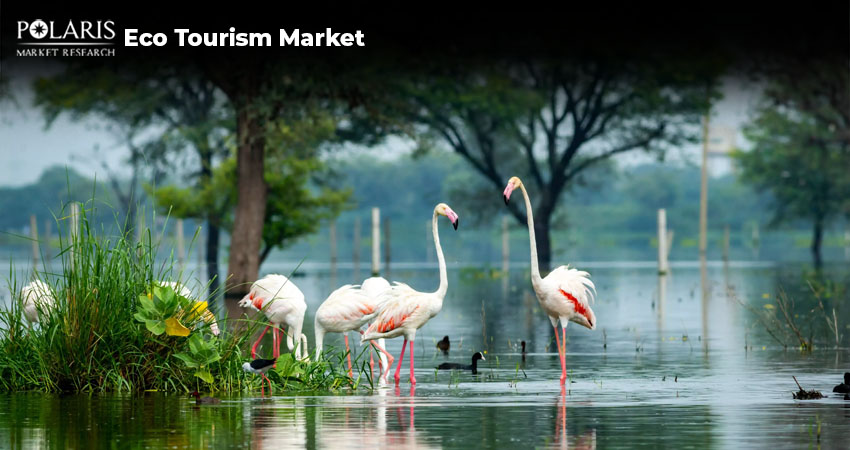Promoting Travel Sustainability With the Ecotourism Market

As the world becomes increasingly aware of environmental challenges, ecotourism has emerged as a beacon of sustainable travel. Unlike traditional tourism, which may contribute to environmental degradation, ecotourism aims to reduce the negative impacts of travel by promoting responsible practices that benefit both the environment and local communities.
But what is it about ecotourism that can promote environmental conservation? In this blog post, we explain to you the basics of ecotourism and its various benefits. Also, we shed light on some key ecotourism trends and how businesses can leverage the ecotourism market. Read on!
What is Ecotourism?
Ecotourism refers to a form of responsible travel that focuses on experiencing natural environments in ways that conserve the environment, respect local cultures, and support the well-being of local communities. It encourages visitors to learn about the ecosystems they visit, which can include tropical rainforests, wildlife reserves, and coral reefs, among others. At the same time, it minimizes the carbon footprint of these tourists and supports conservation efforts.
The concept of ecotourism is based on sustainability. It strives to create a balance between the rising desire to explore new destinations and the need to protect these destinations for future generations. This means that ecotourism practices prioritize environmental conservation, resource preservation, and minimizing waste production.
What Are the Benefits of Ecotourism?
Ecotourism offers a range of benefits for both the environment and the local communities that host travelers. Here are some of the key advantages of this sustainable travel approach:
Environmental Conservation
One of the major benefits of ecotourism is its contribution to environmental conservation. Ecotourism attracts travelers to protected areas and eco-friendly destinations, prompting governments and organizations to preserve natural landscapes and biodiversity. The revenue generated from ecotourism helps fund conservation projects, park maintenance, and wildlife protection.
Local Community Support
Ecotourism can be a powerful tool to drive the economic development of local communities. By choosing to visit ecotourism destinations, travelers contribute directly to local economies. In many places, ecotourism businesses are owned and operated by locals. This ensures that profits stay within the area. In addition, ecotourism also helps create employment opportunities, promotes local craftsmanship, and supports the livelihood of people who rely on tourism for income. Furthermore, ecotourism creates a deeper understanding and respect for local cultures and traditions.
Educational Impact
One of the crucial aspects of ecotourism is its potential to educate travelers about the importance of conserving the environment. Through guided tours and visits to conservation projects, eco-tourists gain first-hand experience of the challenges faced by ecosystems. It also helps them understand how their actions can help mitigate environmental damage.
Preserving Biodiversity
Ecotourism plays a vital role in conserving biodiversity. Several ecotourism destinations are located in areas with high biodiversity, such as national parks and tropical rainforests. Ecotourism helps in the protection of these ecosystems from unsustainable practices like mining, logging, and industrial agriculture. By supporting eco-friendly initiatives, travelers ensure that endangered species and unique ecosystems are preserved.
What Are Popular Ecotourism Destinations?
The world is home to several stunning ecotourism destinations that allow travelers to experience nature while supporting conservation efforts. Here are some top ecotourism spots globally:
Costa Rica
Costa Rica, known for its rich biodiversity and commitment to sustainability, is one of the top ecotourism destinations in the world. A significant percentage of the country’s land is protected, and ecotourism plays a crucial role in fueling its economy. Costa Rica is home to several rainforests, volcanic landscapes, and pristine beaches. Eco-tourists can engage in activities such as birdwatching, hiking, and wildlife tours.
New Zealand
New Zealand is home to several breathtaking landscapes, ranging from lush forests to alpine peaks. This makes it a paradise for eco-tourists. The country is known for its environmental awareness and sustainable practices. In New Zealand, eco-tourists can explore national parks like Fiordland and Tongariro, where ecotourism is key to conservation efforts. In addition, the country boasts a wide range of eco-friendly accommodations and tours that prioritize sustainability.
The Galápagos Islands
The Galápagos Islands, located off the coast of Ecuador, are another popular ecotourism destination. They are a UNESCO World Heritage site and are known for their unique wildlife and pristine ecosystems. There are strict regulations in place on these islands to ensure that tourism doesn’t harm the environment. The Galápagos Islands offer visitors the chance to observe rare species such as giant tortoises, marine iguanas, and endemic bird species while learning about conservation efforts that protect the fragile ecosystems.
What Are Key Trends Transforming the Ecotourism Landscape?
As ecotourism continues to evolve, here are the key trends shaping the future of sustainable travel:
Sustainable Accommodations
The rising demand for sustainable travel options is contributing to the increasing popularity of eco-friendly accommodations. Several hotels, lodges, and resorts are adopting green building practices, implementing energy management systems, and utilizing renewable energy sources. In addition, eco-lodges often support local communities by sourcing food globally and offering employment opportunities to locals.
Digital Transformation and Ecotourism Apps
Technology is playing a key role in driving the growth of ecotourism. The introduction of digital platforms and ecotourism apps is enabling travelers to make more sustainable choices by offering information about eco-friendly accommodations, sustainable tour operators, and carbon offset projects. These platforms also allow travelers to track their environmental footprint and make more informed decisions.
Carbon Offsetting and Green Travel
As part of their commitment to sustainability, several ecotourism businesses and travelers are now incorporating carbon offsetting into their travel plans. This includes supporting projects that help reduce or eliminate greenhouse gas emissions, such as reforestation initiatives or renewable energy projects.
Promoting Sustainable Travel
The ecotourism market is rapidly expanding, fueled by the rising consumer desire to travel responsibly and contribute to environmental preservation. By adopting ecotourism principles, travels can experience some of the world’s most beautiful places while supporting environmental conservation.

